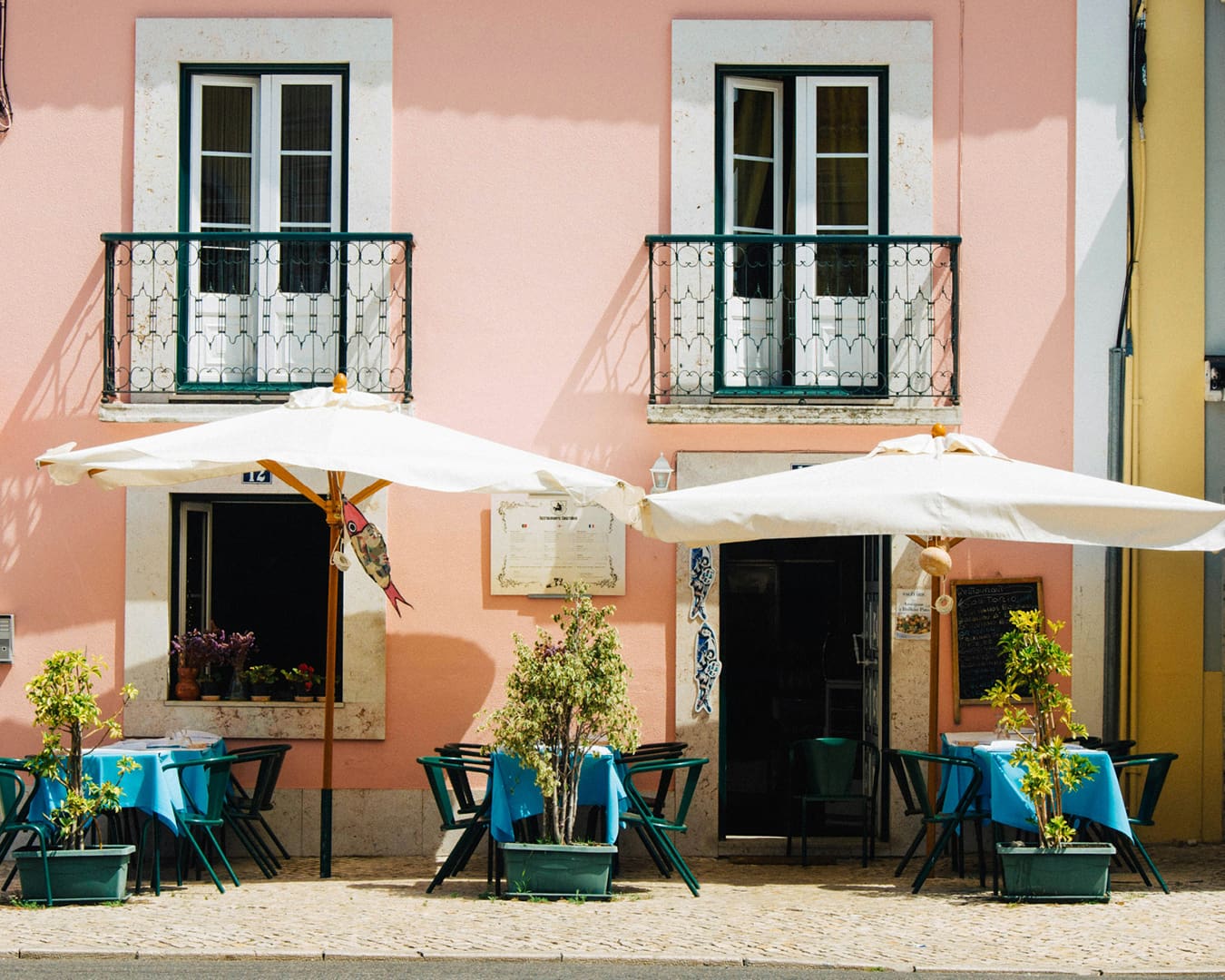In the wake of an Airbnb backlash, home swapping has quickly become a popular trend for cash-conscious tourists. Though the concept isn’t exactly new – the 2006 film The Holiday with Cameron Diaz and Kate Winslet hinged on a house trade-off – it’s recently gained mainstream appeal thanks to the cost-of-living crisis and a new breed of design-focused apps.
Handing your own keys over to strangers might seem like an odd concept, but converts believe it offers a more authentic travel experience. And beyond the obvious money-saving benefits, there’s a broader sense that shifting tourists from short-term lets to home-swapping platforms could have the added bonus of reducing the harmful impact travel is having on housing right now.


LEFT: CROWDS AT BROADWAY MARKET, LONDON. RIGHT: REGENT’S CANAL, LONDON
Is the digital nomad dream over in Lisbon?
From Athens to Amsterdam, Europe’s deepening housing crisis is being felt across the continent. Economists say that a major contributing factor is a surge in short-term holiday lets, popularised by platforms such as Airbnb. While these platforms are attractive to visitors looking for more authentic travel experiences, they’ve proven to come at the expense of locals.
Tourist-heavy Lisbon is a prime example. A series of ‘Golden Visa’ schemes marketed towards wealthy digital nomads, a heavily deregulated property market and a shift in landlords favouring light-touch holiday lets have all haven driven rents to new heights. Earlier this year, rents in Lisbon saw their steepest increase since 1994, underscoring how quickly and dramatically the situation has escalated.
Here, Airbnbs command an average 117 GBP per night rate for a taste of Lisbon’s cool cultural scene and favourable conditions for digital nomads. Meanwhile, Portugal’s monthly minimum wage sits at 760 EUR, and more than 50 per cent of people earn less than 1,000 EUR a month.

When asked about how the problem has emerged over the past decade, Andrew Evans, deputy chief economist at research consultancy Capital Economics said: “Airbnb traditionally involved an average person renting out their home for a bit of extra cash while they were away on holiday, but now professional landlords with multiple properties are taking their rental homes out of the market and converting them into Airbnbs.”
The consultancy also published a 2020 report that analysed the scale of the UK’s short-term lets sector. It found that landlords were motivated by three main factors: higher flexibility, the recent restrictions that have come into landlord legislation, and the ability to charge higher rents for each property on a per-night basis. Similarly, on New York‘s trendy Lower East Side, for example, one study found that full-time Airbnb listings earned, on average, two to three times more than the median long-term rent.







